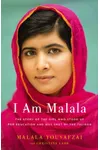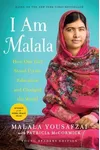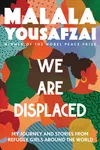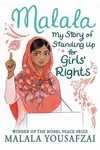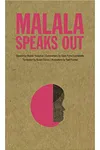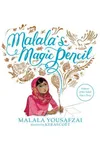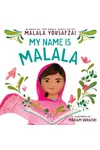Picture a fearless young woman from Pakistan’s Swat Valley who turned her fight for education into a global movement—meet Malala Yousafzai! Born in 1997, Malala became the world’s youngest Nobel Peace Prize laureate at 17, championing girls’ rights to learn despite Taliban threats. Her story, from surviving an assassination attempt to founding the Malala Fund, is a beacon of courage and hope.
With her powerful books and tireless advocacy, Malala has inspired millions to believe in the transformative power of education. Let’s dive into her incredible journey, from a small town in Pakistan to the world stage!
The Making of Malala Yousafzai
Malala Yousafzai was born on July 12, 1997, in Mingora, a town in Pakistan’s Swat Valley. Raised by her educator father, Ziauddin, and supportive mother, Tor Pekai, Malala grew up valuing knowledge in a region where girls’ education was under threat. By age 11, she was blogging for the BBC under a pseudonym, sharing her life under Taliban rule. Her bold voice drew attention—and danger—setting the stage for her remarkable path.
In 2012, at just 15, Malala survived a targeted attack by the Taliban, shot while riding a school bus. The world rallied behind her recovery, and instead of silencing her, the attack amplified her mission. She moved to the UK for treatment and continued her advocacy, proving resilience is her superpower.
Malala Yousafzai’s Unforgettable Stories
Malala’s writing blends raw honesty with a hopeful vision, making her books both personal and universal. Her memoir, I Am Malala (2013), co-written with Christina Lamb, recounts her childhood, the attack, and her fight for education. It’s a gripping tale of defiance, earning global acclaim for its clarity and heart.
She followed with Malala’s Magic Pencil (2017), a children’s book inspired by her childhood dreams. Using a whimsical tone, it encourages young readers to believe they can change the world. We Are Displaced (2019) shifts focus to refugee girls, weaving their stories with Malala’s own displacement after the attack. Her latest, Let Her Learn (ongoing advocacy content), amplifies her Malala Fund’s mission through speeches and essays.
Malala’s style is direct yet warm, blending storytelling with calls to action. Her themes—education, equality, and resilience—resonate across cultures, making her work a rallying cry for justice. Whether addressing the UN or writing for kids, she crafts messages that stick.
Why Malala Yousafzai Matters
Malala’s impact transcends borders. Through the Malala Fund, she’s helped millions of girls access education, from Nigeria to Afghanistan. Her story has reshaped global conversations about gender equality, inspiring activists and policymakers alike. At the UN, her speeches galvanized action, while her books have empowered readers to challenge injustice.
Her legacy lies in showing that one voice—no matter how young—can spark change. From classrooms to refugee camps, Malala’s work reminds us that education is a right worth fighting for. She’s not just a symbol; she’s a catalyst for a more equitable world.
About Malala Yousafzai
- Born: July 12, 1997, Mingora, Pakistan
- Key Works: I Am Malala, Malala’s Magic Pencil, We Are Displaced
- Awards: Nobel Peace Prize (2014), youngest-ever recipient
- Organization: Co-founder of the Malala Fund
Ready to be inspired? Grab I Am Malala and dive into Malala Yousafzai’s world of courage and change!
